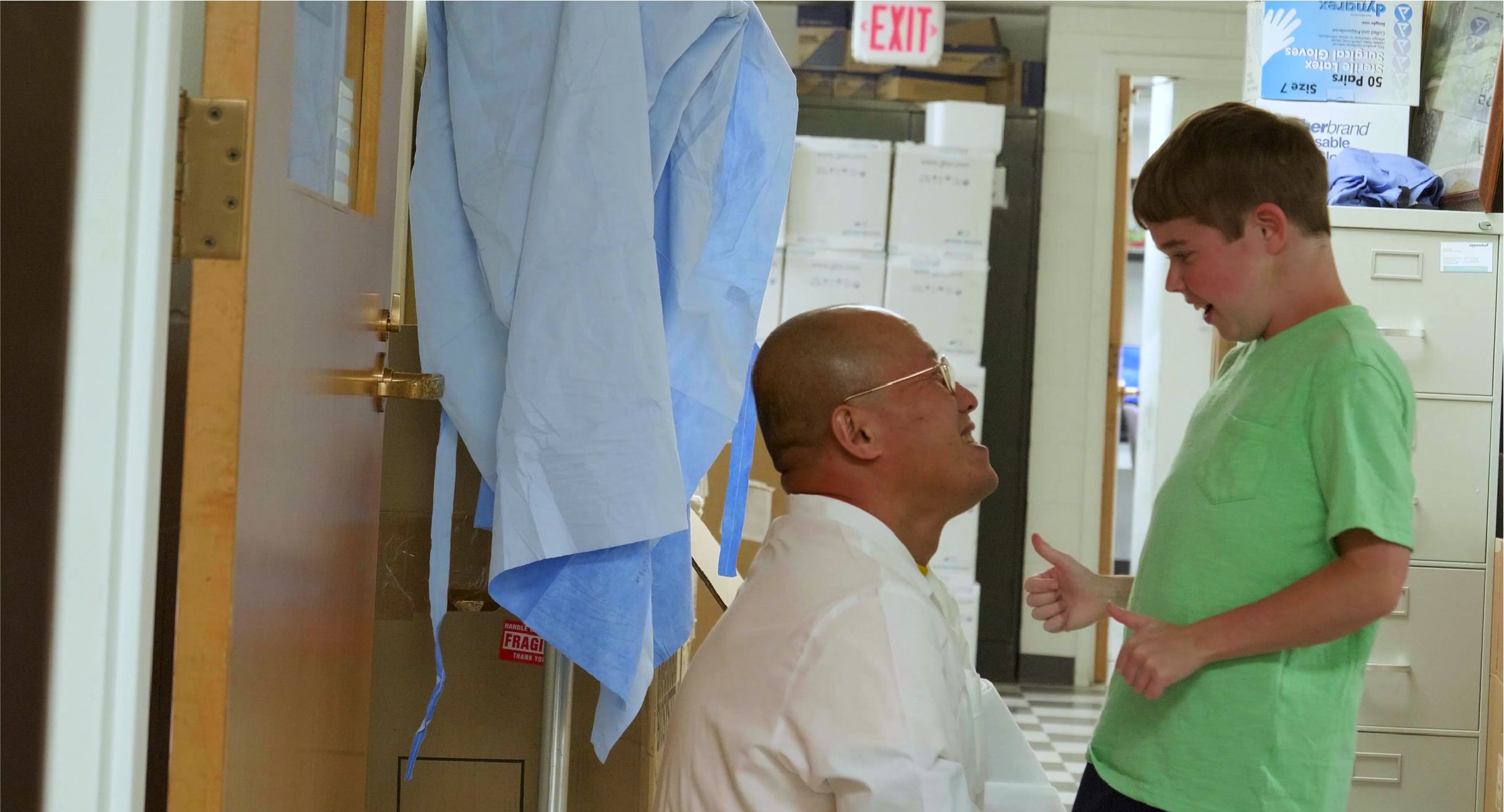Empowering the next generation of bold research
Building the flagship for the future on the strengths of Mizzou

MAKING A DIFFERENCE AT MISSOURI
The University of Missouri confers more than 9,000 degrees and certificates annually to students who share a common set of values: Be bold and make an impact. Don’t just live in the world — transform it to benefit others. From first-year students to emeritus faculty, these transformational ambitions are the driving force behind an entire institution dedicated to meeting the world’s major challenges and impacting the lives of all people in Missouri and beyond.
IMPACTING THE WORLD ONE LIFE AT A TIME
A father of nine children, MU School of Medicine alumnus Robert McDonald understands the aspirations of every parent.
“The thing a parent wants is for their child to be happy, and to be capable and to be a good person,” says McDonald.
He also understands how it feels when those hopes can’t be guaranteed. At only 14 ½ years old, Robert McDonald’s youngest son, Mark, has been living with a rare genetic disease for nearly his entire life.
Caused by the absence of a protein that helps keep muscle cells intact, Mark McDonald suffers from Duchenne muscular dystrophy, a genetic condition in which muscle cells become increasingly weak, eventually causing the loss of motor function. As the disease progresses, the muscles responsible for breathing and heart regulation stop working. Life expectancy for those with Duchenne is only 26 years old.
A Duchenne child is like an ice sculpture of your boy. And what happens with Duchenne is your boy is melting.
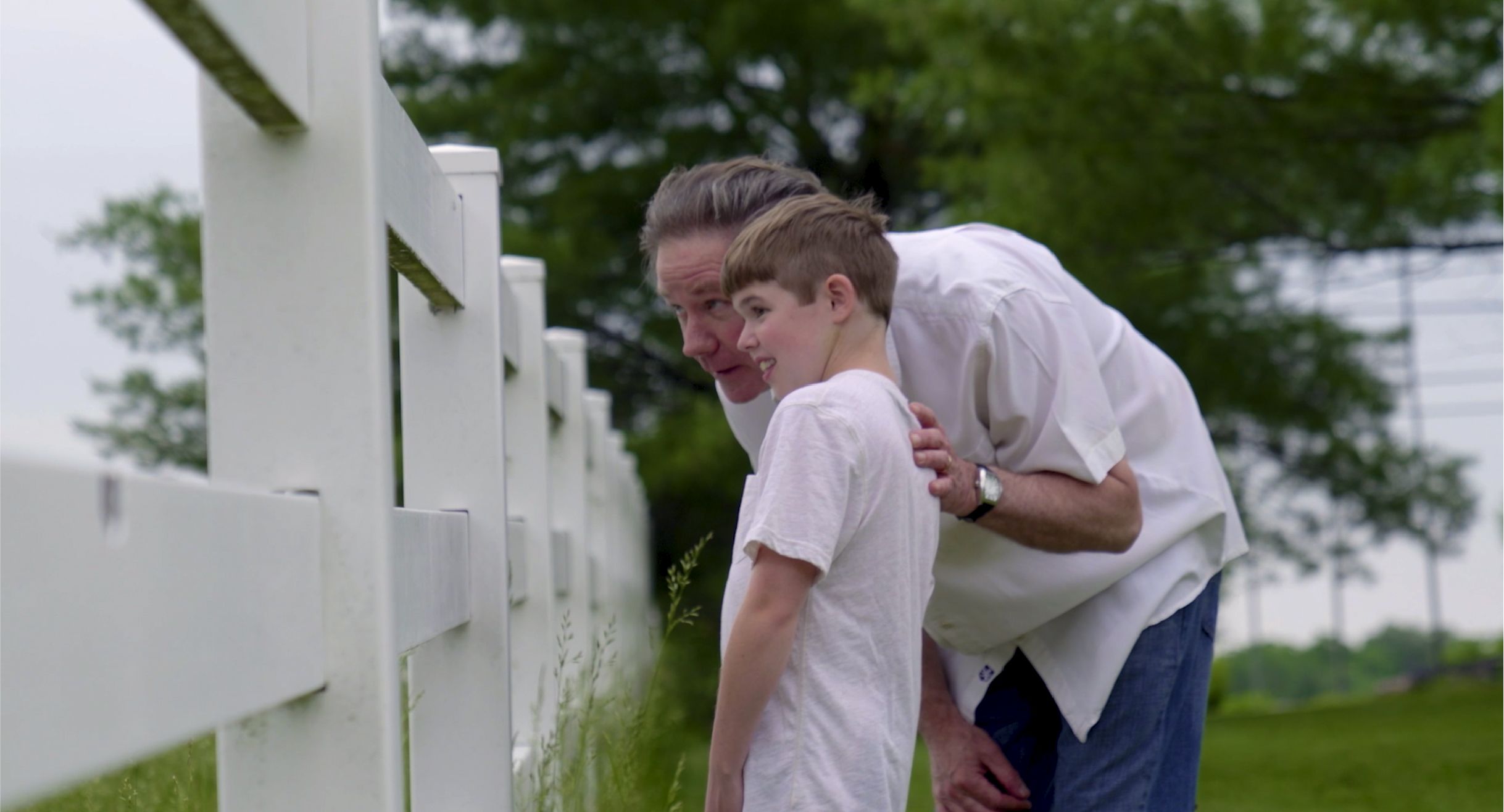
Service-oriented discovery forms the foundation of MU’s culture of impactful research.
Service-oriented discovery forms the foundation of MU’s culture of impactful research.
Confronted with the challenge of his son’s condition, Robert McDonald set to work searching for the best treatment options. He didn’t have to look far.
MU is one of only a handful of major research universities in the nation to house the unique constellation of talent and resources that brings together not only plant, animal and medical research but also engineers, social scientists, the humanities, industry leaders and the largest university research reactor. As the first university west of the Mississippi, it has been meeting health and research challenges head-on for over 180 years.
“I started printing out papers on Duchenne research, and I see Dr. Duan at MU. He has so much enthusiasm for finding a solution for Duchenne muscular dystrophy,” explains McDonald.
Dongsheng Duan, a 2019 National Academy of Inventors Fellow and researcher at the MU School of Medicine, shares the conviction that better treatments are within our reach.
“If my son has the disease, what am I going to do?” asks Duan. “You want to stop it. You want them to enjoy life. Now, I think that’s important for me and my lab members. There’s always a solution for problems. How can we do better?”
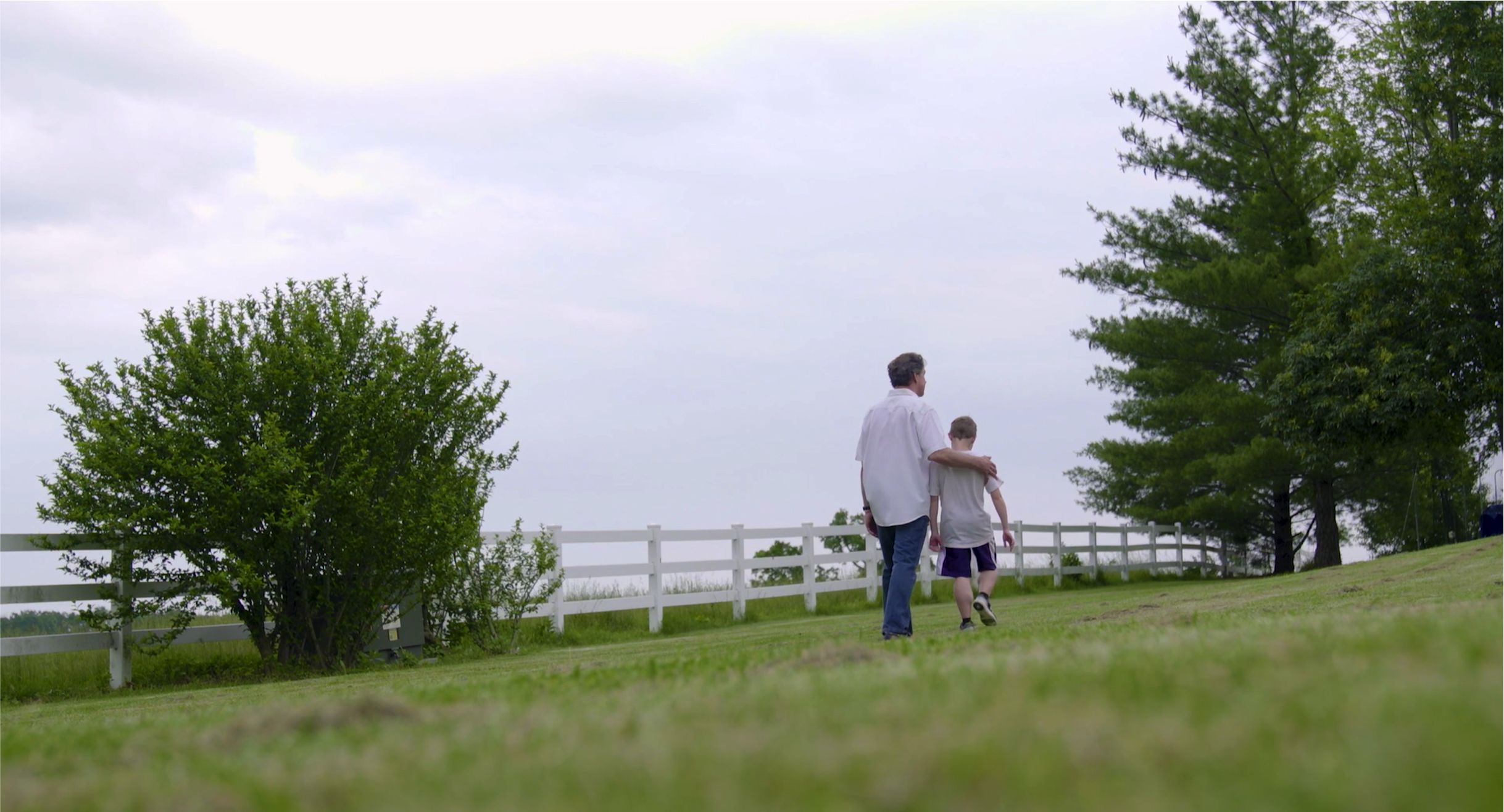
Transformational projects like the new $220.8 million NextGen Precision Health Institute are changing lives in Missouri and around the world.
Transformational projects like the new $220.8 million NextGen Precision Health Institute are changing lives in Missouri and around the world.
ONLY AT MIZZOU
Dr. Duan and his research team members exemplify the service-driven ethos that has been the trademark of Missouri research for decades. Mizzou’s culture empowers intellectual curiosity, fosters collaboration, and encourages researchers to blaze their own bold paths.
For their part, Duan and his team members have already started pioneering new treatments for a once incurable disease. The team’s work identifying and overcoming the barriers of gene editing may lay the foundation for sustained therapies and treatments for Duchenne patients, and those suffering from other critical conditions.
Duan’s fierce commitment to improving the lives of others is a fine example of the independent and service-oriented research spirit happening every day at Mizzou.
“To try and find a therapy is really something I really want to do. It’s my dream,” says Duan. “At the University of Missouri, we have all the support, skills and technologies, to do this, to make this difference. The University of Missouri is an ideal place to carry out our studies. I don’t know that we could make this difference anyplace else.”
Watch the McDonald family story.
Watch the McDonald family story.
With cutting-edge research and transformational projects like a statewide precision health initiative, four new NIH-funded research centers, the nation’s most powerful nuclear research reactor, and a double-digit increase in annual federal research funding, the great minds at Mizzou are working together like never before to discover solutions for the world’s greatest problems.
GREAT RESEARCHERS DESERVE GREAT SPACES
In support of its confident, hard-working and creative culture, MU has begun construction on the new NextGen Precision Health Institute, a $220.8 million research hub at the University of Missouri-Columbia, that will support the NextGen Precision Health Initiative across the University of Missouri System’s four universities and health care system.
Set to open in the fall of 2021, the 265,000-square-foot institute will bring together some of the nation’s best researchers, clinicians and industry partners to perform lifesaving research on cancer, stroke, autism, traumatic brain injuries and other challenging conditions — such as Duchenne muscular dystrophy.
Jeffrey N. Bryan, a professor of oncology at the MU College of Veterinary Medicine and director of Comparative Oncology Radiology and Epigenetics Laboratory, sees the translational research produced by teams like Duan’s as the beginning of a new era in Missouri:
“I think this place will change the world. By bringing all of the resources of the UM System together, we have an unparalleled opportunity for us to lead the way in true innovation.”
With cutting-edge technology, pilot scale manufacturing capabilities and private partnership spaces, MU researchers will be able to effectively develop critically needed treatments, and deliver them to people faster than ever before.
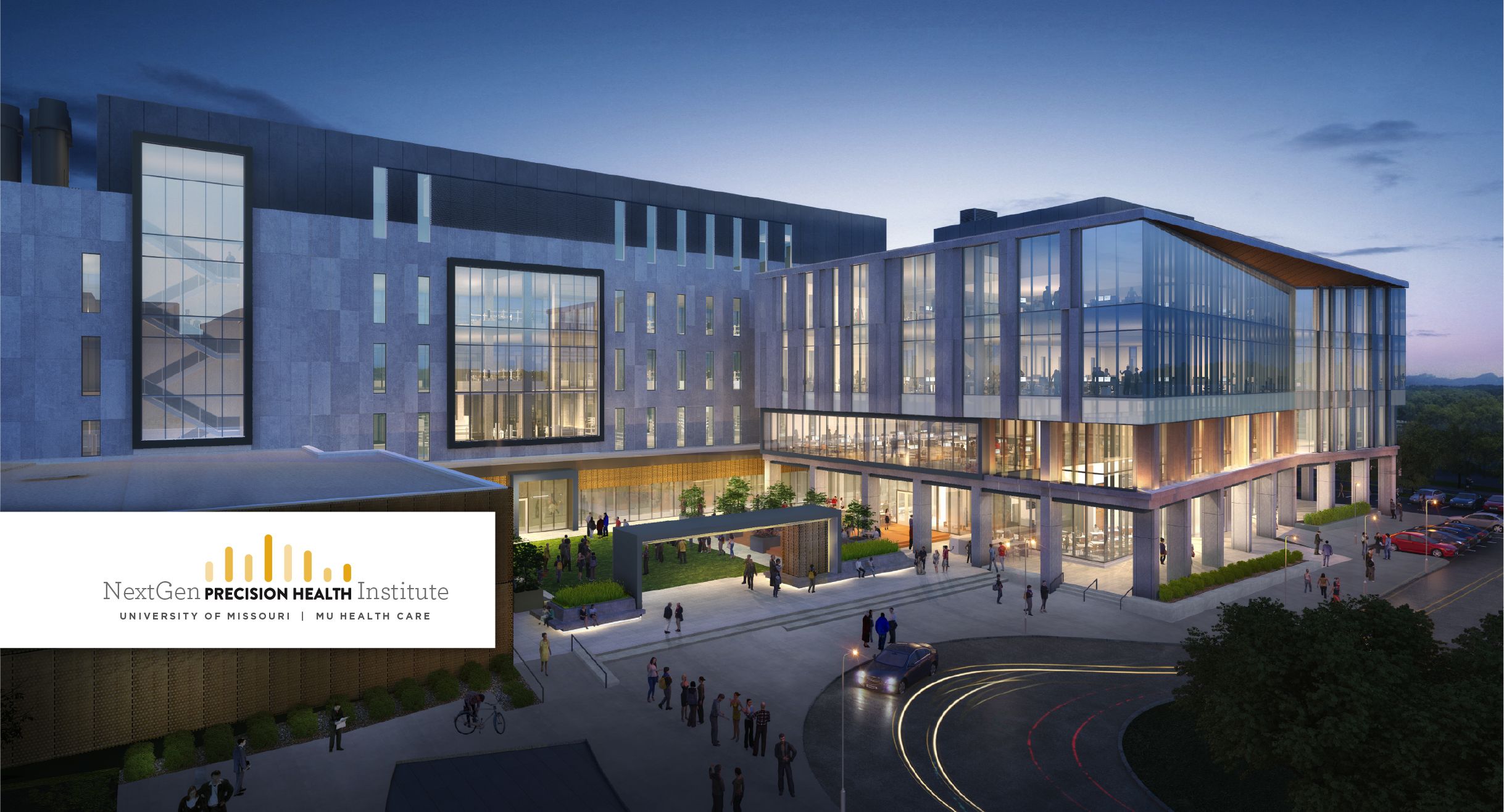
With four new NIH-funded research centers last year, Mizzou continues to grow its research enterprise.
With four new NIH-funded research centers last year, Mizzou continues to grow its research enterprise.
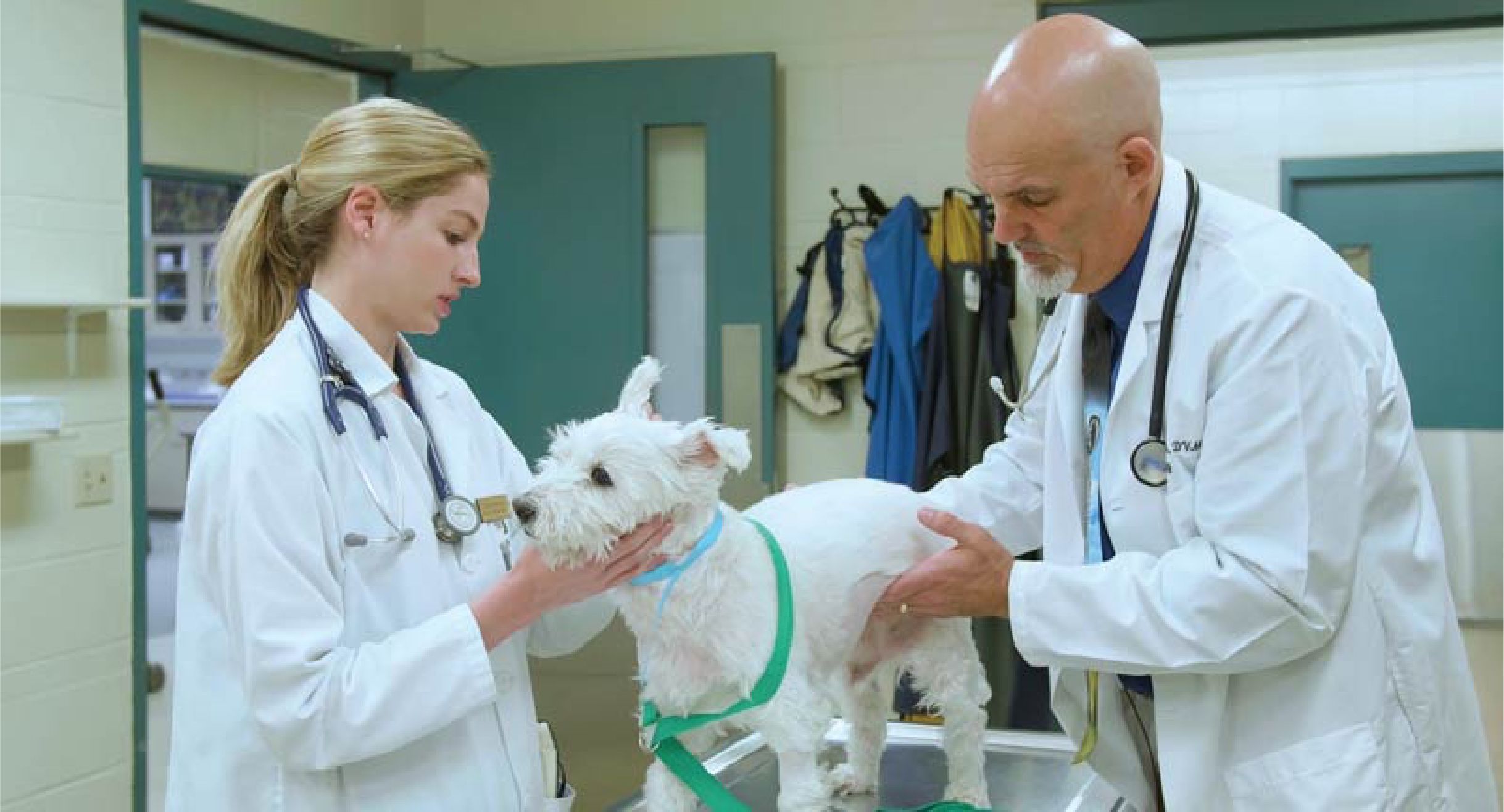
Translational research at Mizzou is already accelerating life-changing discoveries for animals and humans alike.
Translational research at Mizzou is already accelerating life-changing discoveries for animals and humans alike.
“This new facility is going to provide an interactive environment that brings together the researchers who build the basic pieces of drugs, researchers that test these drugs in living bodies, and researchers that translate these drugs into the clinic in one space,” explains Bryan.
Mizzou isn’t just waiting for the building to be constructed. The university has already begun to improve the state of health across Missouri by launching an alliance with Siemens Healthineers. Aimed at transforming the delivery of care, the partnership will connect patients and their doctors with the latest innovations in diagnostic and therapeutic equipment, educational and training resources, and digital health solutions — seeking to help people throughout the state.
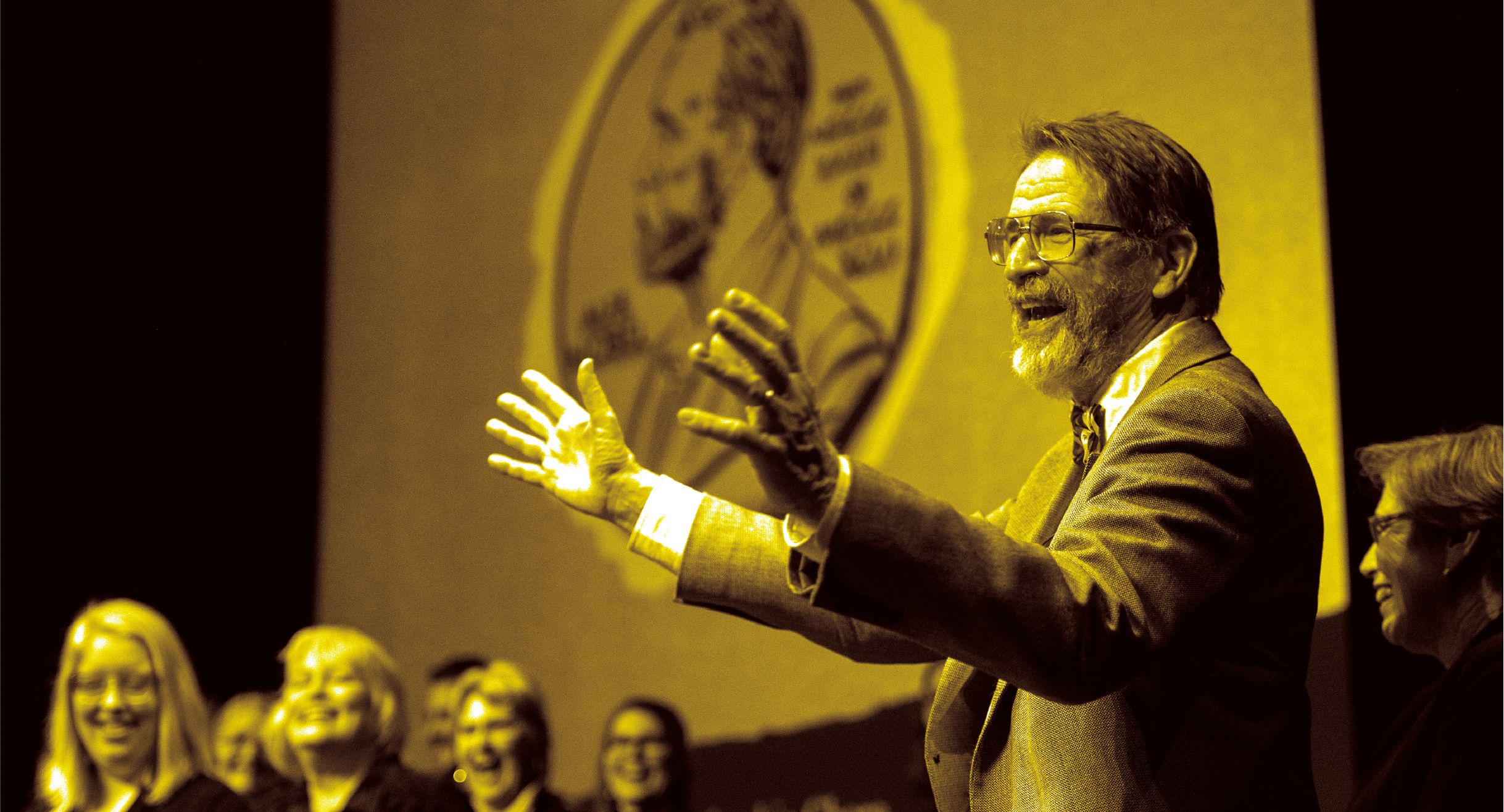
Dr. George Smith: Mizzou’s first faculty member to win a Nobel Prize.
Dr. George Smith: Mizzou’s first faculty member to win a Nobel Prize.
Being at Mizzou, I had a tremendous amount of freedom to explore what I think is interesting. Not all universities give you the freedom to do that, and I think science really depends on that.
WHERE PEOPLE MEET POSSIBILITY
Soon, state-of-the-art resources at the University of Missouri’s NextGen Precision Health Institute will facilitate even more opportunity for collaborative thought and precision health breakthroughs. While there is still work to be done, families like the McDonalds can sense real change is here: “It’s not a sort of blind hope,” adds Robert McDonald. “This is based on real science, real progress. The whole point of it is to help more people, faster. At the end of the day, that’s really what makes this whole Precision Health Initiative just fantastic. It’s what will change the outcome for so many people.”
Working together, research at the University of Missouri is helping to impact one life at a time, and in so doing impacting the world.




